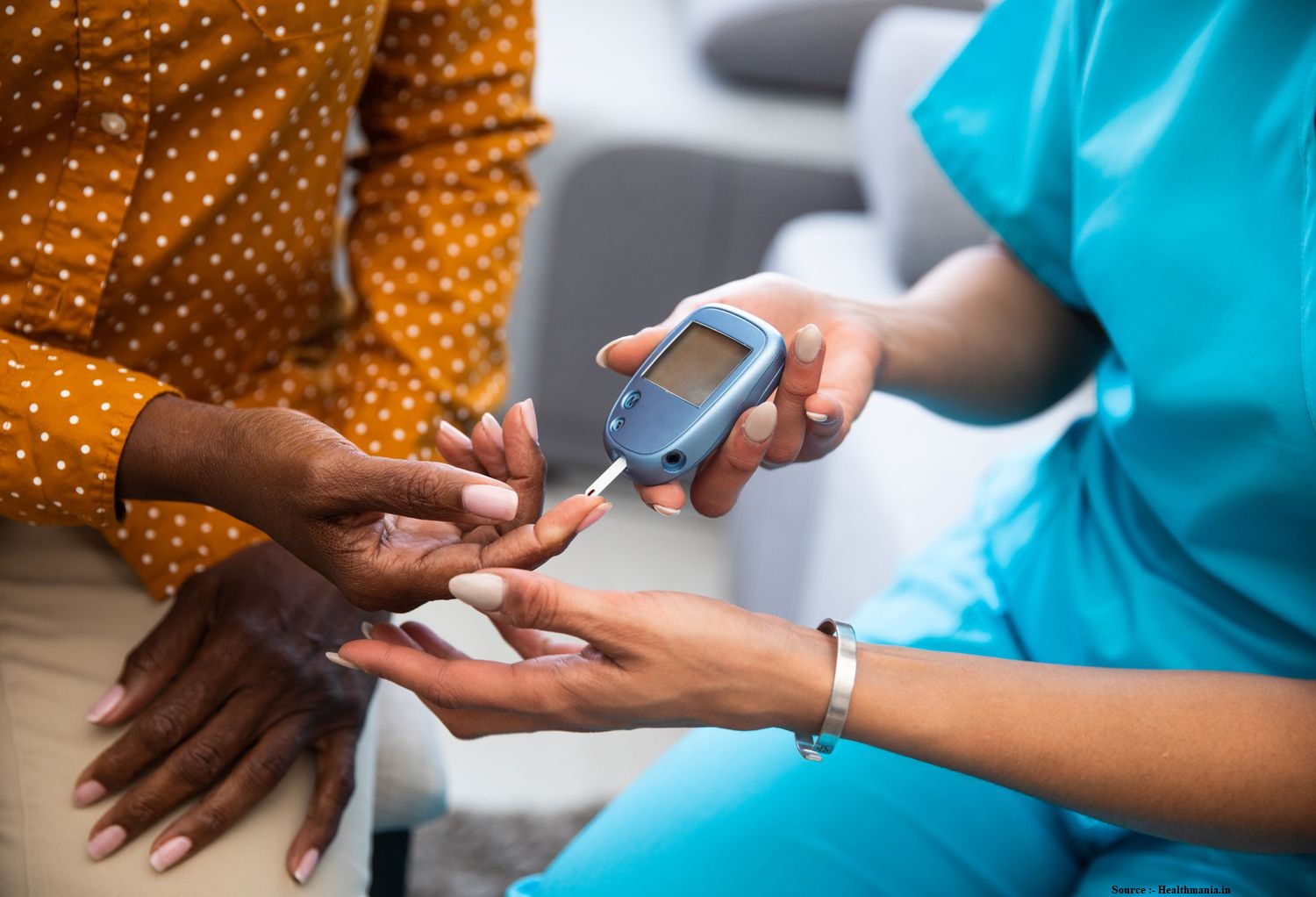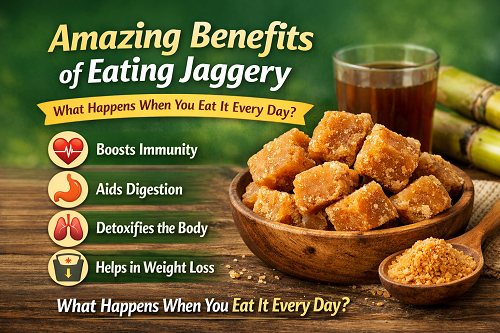What is biotin?
Vitamin B7, sometimes referred to as biotin, is necessary for normal hair development. Enhancing your diet with foods high in biotin can help you have stronger, thicker, and more generally healthy hair. It is vital for the synthesis of fatty acids, which are needed to keep tissues and cells in good condition. Biotin deficiencies are rare because the vitamin is produced by bacteria in the stomach and can be found in a variety of meals. Nonetheless, a number of factors, including as pregnancy, drinking, smoking, and using certain medicines, may increase the likelihood of a deficiency. A deficit in biotin can cause neurological symptoms such as sadness and exhaustion, skin rashes, and hair loss.
Benefits of Biotin :
Biotin is sometimes called the “beauty vitamin” because to its significance in maintaining the health of nails, skin, and hair. Biotin’s significance and advantages are as follows:
Biotin is necessary for the metabolism of lipids, proteins, and carbohydrates. This conversion process is necessary for the body’s cells to function and for overall energy levels to be maintained.
One of the most well-known uses of biotin is for hair health benefits. A lack of biotin can cause thinning and hair loss.
Pregnant women have higher requirements for biotin, so it’s critical to ensure that both the mother and the developing kid get enough of the vitamin.
Biotin is essential for nursing mothers since it is passed from the mother to the child through breast milk. Breast milk is necessary for an infant’s growth and development.
Biotin has an impact on blood sugar management. People who are at risk of developing diabetes or who currently have the condition should focus especially on this function. Sufficient quantities of biotin can lead to improved insulin sensitivity and stable blood sugar.
Biotin is essential for healthy muscle function. It aids in the metabolism of amino acids, which are the building blocks of proteins. Muscle growth, maintenance, and repair are all aided by biotin.
Biotin has an impact on the thyroid. The thyroid gland secretes hormones that regulate metabolism, energy levels, and overall growth and development. The thyroid gland needs enough amounts of biotin in order to function effectively and create thyroid hormones. Taking biotin supplements helps to lessen the symptoms of thyroid disorders.
Biotin is necessary for the immune system to function. Moreover, biotin maintains the health of mucous membranes, which act as a barrier against infections.
Additionally, biotin maintains a healthy digestive system. Adequate levels of biotin have been shown to mitigate the symptoms of gastrointestinal disorders, such as irritable bowel syndrome (IBS) and inflammatory bowel disease (IBD).
The vitamin biotin affects how the body handles stress. It has been demonstrated that taking adequate biotin can lessen the symptoms of conditions like anxiety and depression that are brought on by stress.
Your eyes’ well-being is reliant on biotin. Enough biotin in the body can prevent two conditions: dry eye syndrome and age-related macular degeneration (AMD).
A sufficient intake of biotin can reduce the incidence of osteoporosis and fractures by strengthening and massening the bone.
Rich in Biotin Foods :
Eggs
Eggs, especially the yolks, are one of the best sources of biotin, a B vitamin required for strong, healthy hair. These comprise the vitamins A, D, E, and B12, which promote many aspects of the scalp and hair health. Vitamin A contributes to the production of sebum, which keeps the scalp moisturized, while vitamins D and E support the growth of hair and provide protection against oxidative stress. A quick and effective way to get more biotin into your diet is to include eggs on a daily basis.
Serving suggestions include poaching, boiling, scrambling, or adding to salads.

Seeds and Nuts
Almonds, walnuts, peanuts, sunflower seeds, and chia seeds are a few examples.
Content: Rich in proteins and healthful fats, these are excellent providers of biotin.
Serving suggestions include adding them to smoothies, salads, or snacks.
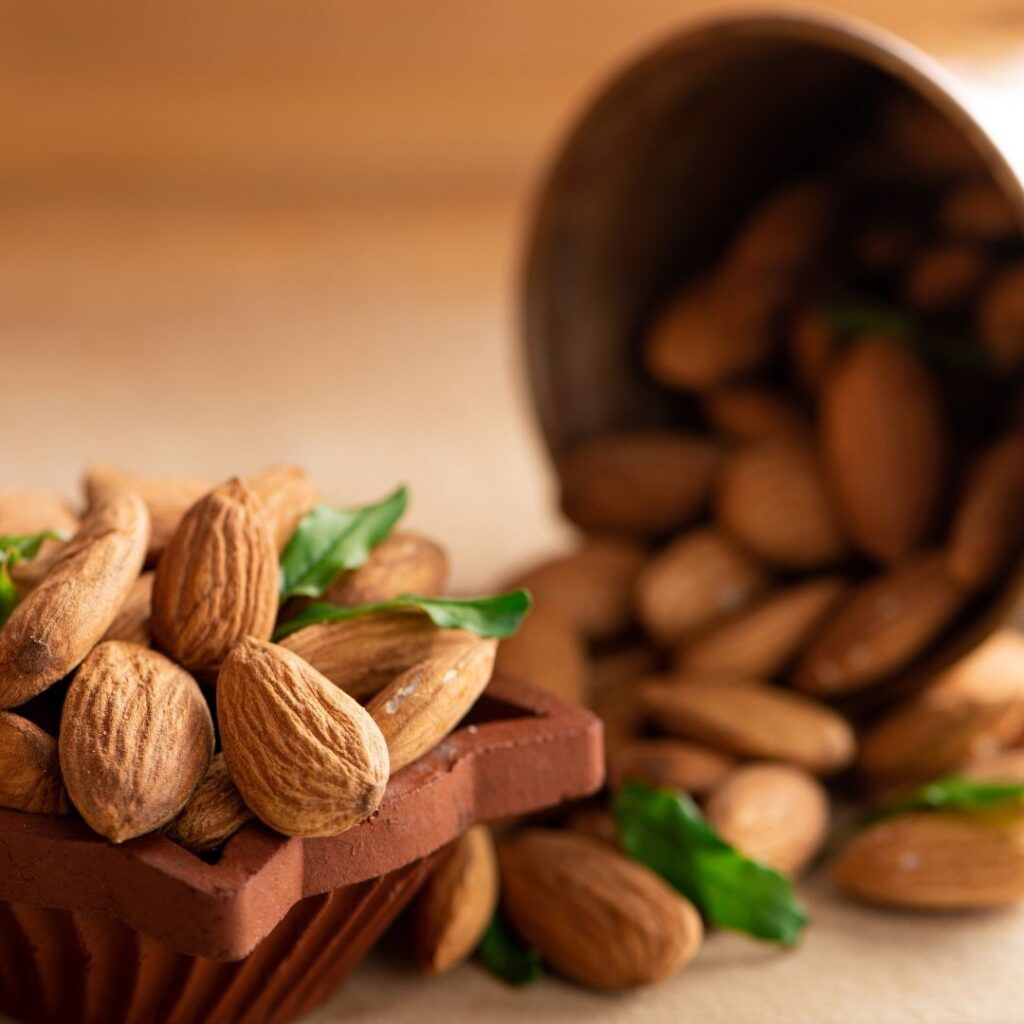
Legumes
As an illustration, consider lentils, soybeans, peas, and beans (such as kidney, chickpea, and black beans).
Content: Packed with of protein and biotin.
Getting in touch Ideas: Add to salads, stews, soups, or as side dishes.
Salmon
Packed with omega-3 fatty acids that are good for hair health and a strong source of biotin.
Serving suggestions include baking, grilling, or mixing into pasta and salad dishes.
Sweet Potatoes
Biotin, which is essential for maintaining healthy hair, is found in large amounts in sweet potatoes. Eating sweet potatoes may strengthen hair follicles and encourage the growth of hair. The antioxidants in sweet potatoes protect hair from damage as well. Enjoy them in baked, mashed, or stewed forms to boost your biotin intake and enhance the luster and strength of your hair.
Suggested Servings: Baked, mashed, or used with stews and soups.
Avocados
Avocados are a fantastic source of the nutrients required to maintain strong, healthy hair since they are high in biotin. Vitamin E assists in the healing of scalp injury, while vitamin C encourages the production of collagen, a crucial component of hair structure. Regular avocado consumption can improve the strength, health, and vibrancy of hair. Savor them with salads, smoothies, and toast. Eating avocados every day can enhance the general appearance, luster, and health of your hair.
Serving suggestions: Add to smoothies, guacamole, salads, or sandwiches.
Leafy greens with spinach
Rich in biotin and a leafy green, spinach can help maintain healthy hair. Regular spinach consumption minimizes hair damage and promotes overall hair development by strengthening hair follicles. The high biotin content in spinach makes hair resilient and less prone to breakage. Being a flexible food, spinach can be cooked, blended, or added to salads and other meals. Because of its versatility, you can easily include it in your diet and take advantage of its biotin content.
Serving suggestions: As cooked side dishes, in smoothies, or in salads.
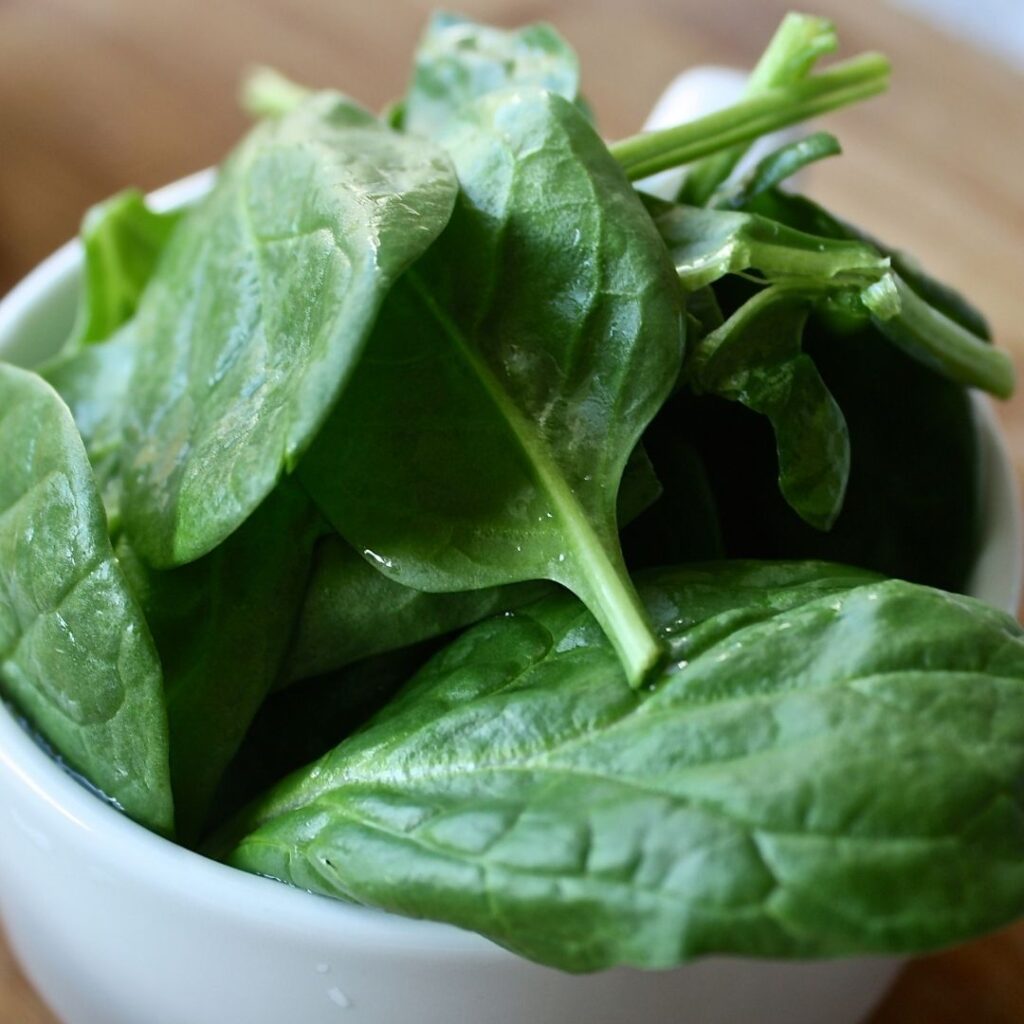
Sunflower Seeds
Packed with antioxidants, vitamins, and minerals, sunflower seeds are a food that is rich in biotin. Despite their high nutritional content, sunflower seeds are high in calories, thus it’s important to consume them in moderation as part of a balanced diet. Eat them as a snack on their own, add them to salads or yogurt, or use them to add crunch and flavor to baked products.
Whole Grains
Including whole grains in your diet is a great method to naturally increase your intake of biotin because they are high in biotin. Whole grains high in biotin include oats, barley, and wheat germ. They go well with baked goods, as oatmeal, or as granola. Barley is another whole grain rich in biotin.
Nuts
Packed full of biotin, peanuts speed up the metabolism of fats, proteins, and carbohydrates, boosting cellular activity and energy generation in general. It’s important to keep in mind that peanuts are a common allergen, so people who are allergic to them should avoid them. Nuts can be a convenient and pleasant approach to boost your intake of biotin and improve your overall health if you don’t have any sensitivities.
Carrots
Carrots are a great source of biotin, a B vitamin that is essential for strong skin, hair, and nails. By include carrots in your diet, you can ensure that you’re getting adequate biotin. Carrots are a great source of beta-carotene, which is a precursor to vitamin A.
Cauliflower
Cauliflower has a good level of biotin, which is required for healthy skin, hair, and nails. Make sure you consume adequate amounts of the vitamin biotin by eating cauliflower. Cauliflower is also a great source of antioxidants, which protect your cells from damage and reduce inflammation in the body. Cauliflower can be consumed raw or cooked to form roasted cauliflower, rice, or mash.
Bananas
Bananas have a good level of biotin, which is required for healthy skin, hair, and nails. By include bananas in your diet, you can ensure that you’re getting adequate biotin. Bananas are a versatile fruit that can be eaten on their own, cooked, or blended into smoothies.
fungi
High in biotin, particularly in button mushroom species.
Serving suggestions include sautéing, adding to soups and noodles, or putting in salads.
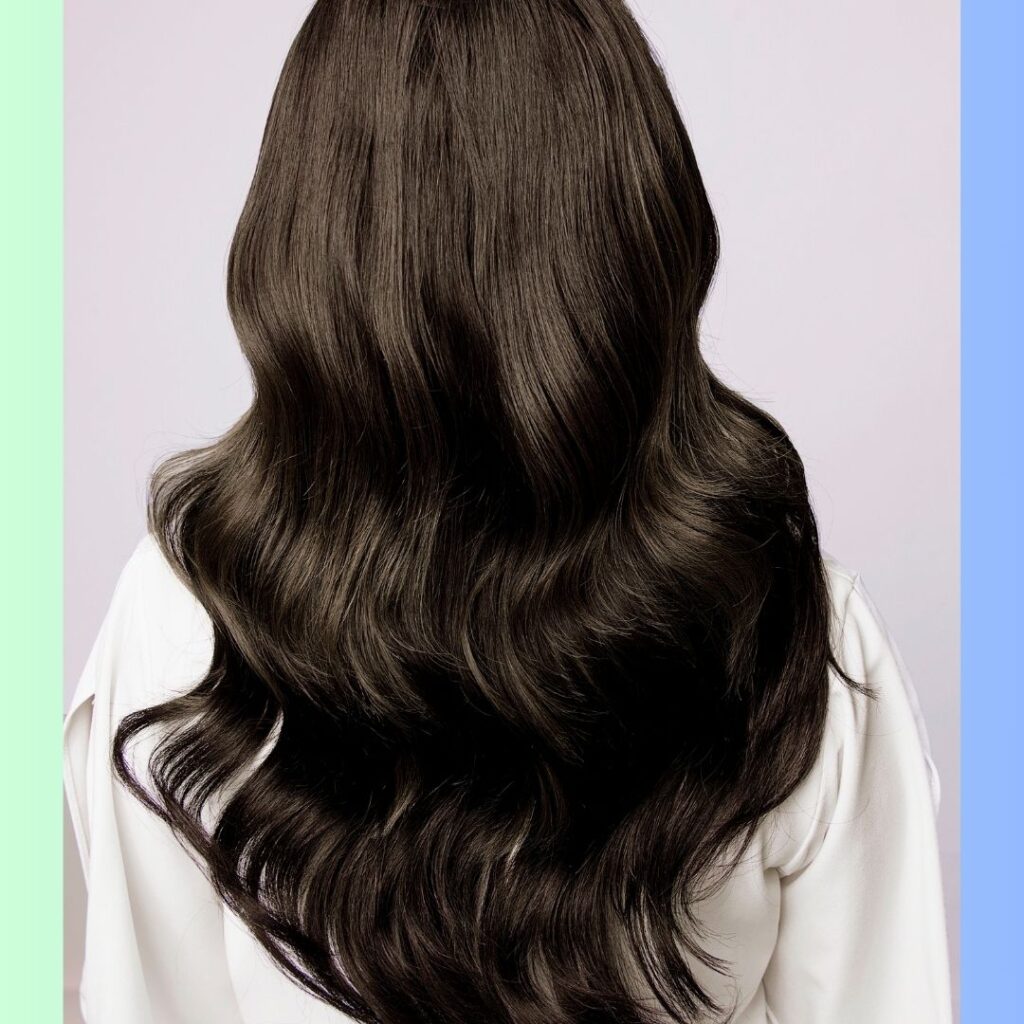
Hair Structure :
The Structure of hair is very complex and made up of protein and keratin. It serves so many functions in humans and animals. Here’s a detailed look at what hair is and also its components :
Functions of Hair
· Protection: Hair on the scalp protects against UV radiation and physical trauma. Eyelashes and eyebrows protect the eyes from sweat and dust.
· Regulation: Body hair helps regulate temperature by trapping heat or aiding in evaporative cooling.
· Sensation: Hair follicles have nerve endings that contribute to the sense of touch.
· Social Functions: Hair plays a significant role in physical appearance.
Hair Growth Cycle
Hair grows in cycles, which consist of three main phases:
- Anagen (Growth Phase): The active growth phase lasting 2-7 years, where hair cells divide rapidly at the root and push the hair shaft up and out.
- Catagen (Transitional Phase): A brief phase lasting 2-3 weeks where hair growth stops, and the hair follicle shrinks.
- Telogen (Resting Phase): The final phase lasting 2-4 months, where hair falls out, and the follicle remains dormant before the cycle restarts with a new hair.



